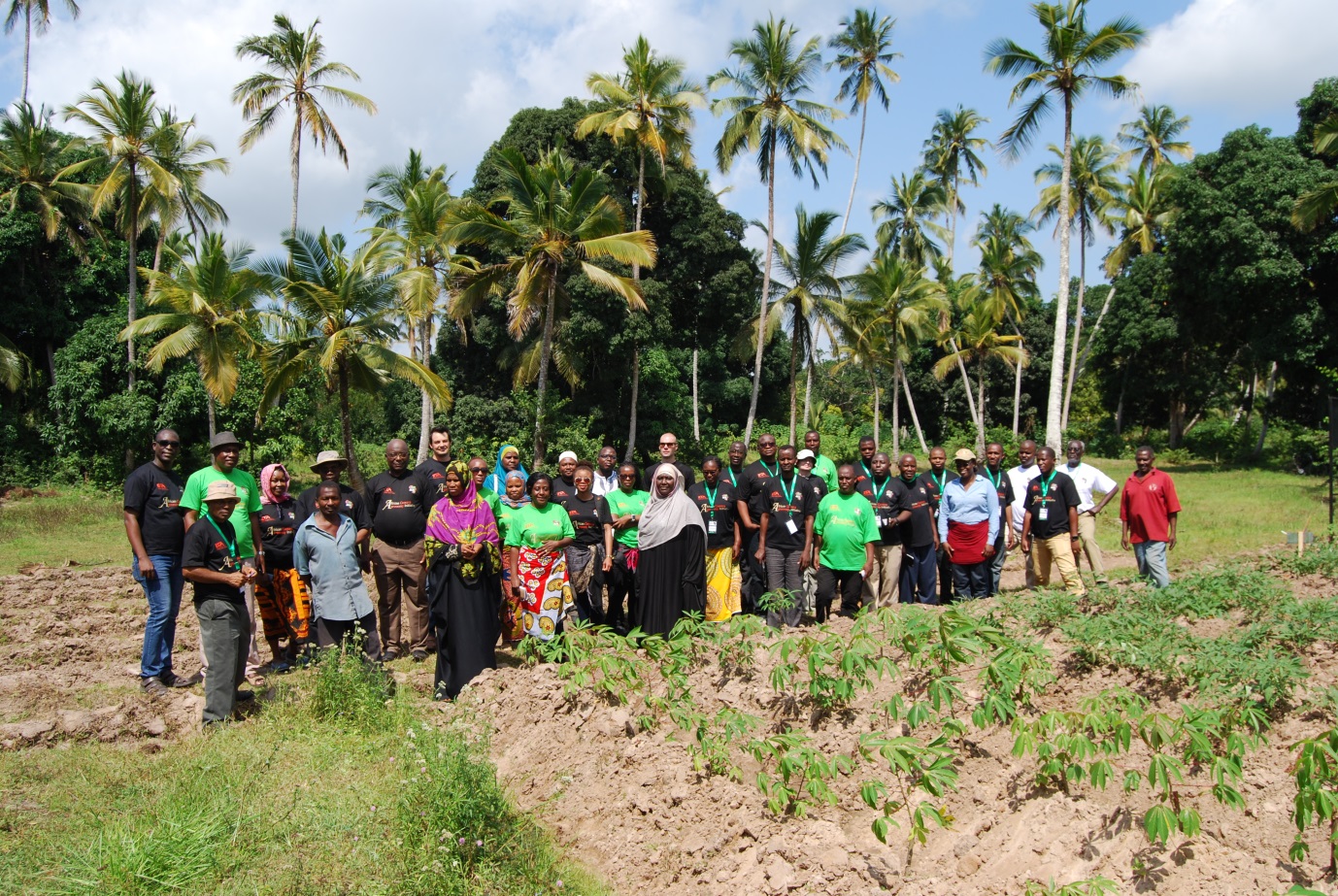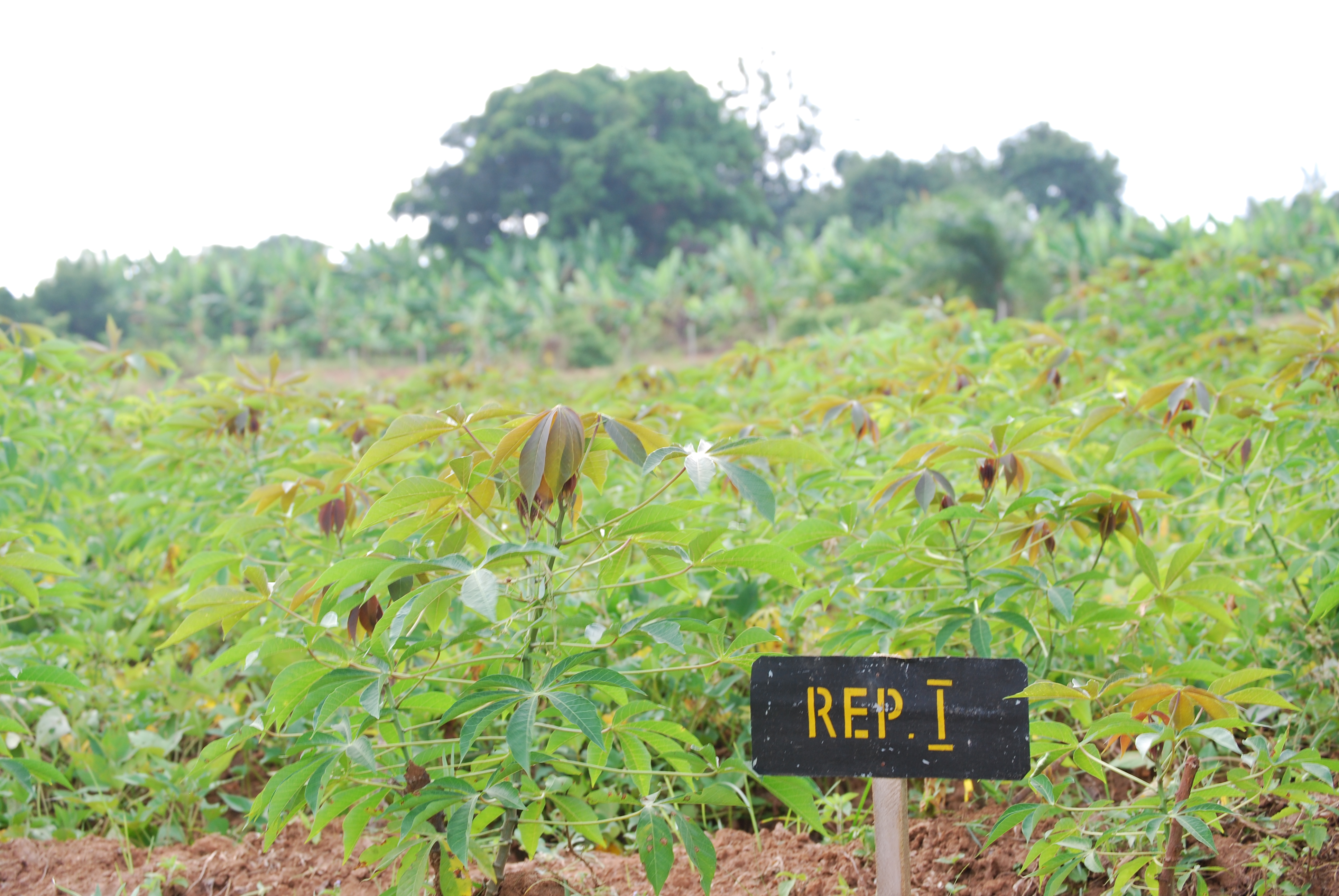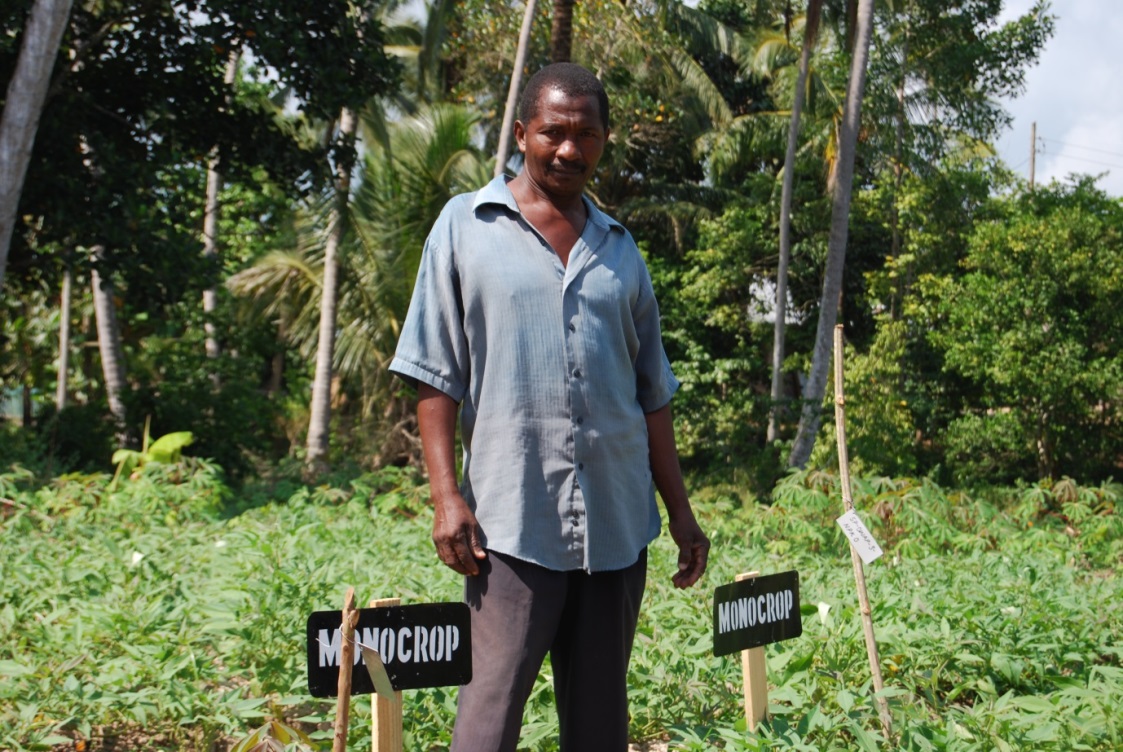This is one of a two-part blog series following my visit to Africa supported by CABI’s development bursary
In June 2017, I visited Zanzibar, Tanzania, to attend a 5-day planning meeting organised by the Africa Cassava Agronomy Initiative (ACAI). The purpose of this planning meeting was to bring together all project partners to identify project milestones and discuss scale-up strategies.
Across sub-Saharan Africa, cassava serves as a food insurance crop, a famine crop, a cash crop, household food security crop, animal feed and raw material for industries. Cassava can therefore be considered as a climate-smart crop given its ability to grow in relatively poor soil and weather conditions compared to other tuber and starch crops.
Nigeria is currently the highest producer of cassava worldwide. However, cassava productivity in Nigeria as well as other cassava producing countries in sub-Saharan Africa including; Tanzania, Ghana, Uganda and the Democratic Republic of Congo, still falls short of its potential attainable yield in sub-Saharan Africa. The ACAI project seeks to reduce this cassava yield gap by developing appropriate cassava agronomy recommendations to improve cassava production and productivity.
The ACAI project has six priority use-cases. These are: (i) a cassava fertilizer blending decision support tool for the fertilizer blending industry, (ii) a site-specific cassava fertilizer recommendation decision support tool for extension agents, (iii) a best planting practice decision support tool for extension agents/farmers, (iv) a cassava intercropping decision support tool for extension agents/farmers, (v) a cassava staggered planting decision support tool for more equally distributed raw material supply for extension agents/farmers, and (vi) a decision support tool advising on best agronomic practices for high root starch content at harvest for farmers supplying the processing sector.
To implement these six use-cases, the ACAI project forms strategic partnerships with stakeholder on the cassava value chain. These partners include farmers, international research institutions, private sector information dissemination partners, fertilizer companies, input suppliers, cassava processors, cassava industry stakeholders, extension agents and national research institutions in ACAI project countries.
CABI, through the African Soil Health Consortium (ASHC) is a strategic partner in the ACAI project. CABI’s role entails mapping pathways to facilitate scale up (communication and wide adoption) of ACAI’s research output and technology along the cassava value chain. This involves identifying cassava value chain actors in ACAI project countries; understanding their information needs; determining the barriers to communication along the value chain; and facilitating effective communication among stakeholders.
The 5-day planning meeting at Zanzibar brought together representatives from various stages of the cassava value chain. We had the opportunity to visit some ACAI cassava field trial plots at the Zanzibar Agricultural Research Station, Donge Vigibweni ward, Unguja, to see some field experiment being carried out by ACAI implementing partners and farmers. These field trials showed the various intercrop patterns of cassava and sweet potato (another important tuber crop in Tanzania).
These field trials are being carried out to identify the best cassava agronomic practices including: timing, spacing and intercropping densities (cassava-sweet potato) that would yield high quantities and better quality cassava with high starch content. It has been identified that processing industries pay higher prices for cassava with higher starch content. Therefore, the higher the starch content, the more money farmers earn.
Farmer Saidi Masood from Donge village, Misufini district, Unguja in Zanzibar is one of the early adopter farmers. He manages a farmer led cassava inter-cropping trial on his field. Fellow farmers have become curious about why he has inter-cropped cassava with a higher density of sweet potatoes; he has explained that he is carrying out a field experiment to determine the different yields he can obtain from the cassava-sweet potato inter-crop. He is willing to share his finding with his fellow farmers.
During the 5-day planning meeting, CABI organised several group discussions with ACAI’s partners. These meetings aimed to review ongoing and past work on cassava information packaging and dissemination across the value chain in Tanzania and also identify critical gaps in knowledge, products and information. These discussions also helped Identify appropriate dissemination pathways and key partners to help develop communication channels to support cassava information scale-up for Tanzania.
The outcome of the meeting emphasized the importance of effective communication along the cassava value chain. As the effects of climate change are dynamic and manifest in various ways, a climate-smart value chain is one where all actors are promptly informed about external shocks, such as drought, floods, pest and disease, that affect their individual as well as collective business activities along the chain. So when all actors are linked to an active communication channel, it builds the resilience of that value chain to these external shocks so that they can respond strategically to these changes.
By Bookie Ezeomah, CABI



